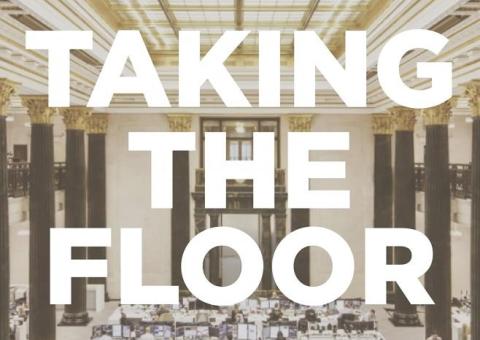Change That Works: the Consultant as Ethnographer
What motivates people to do what they do? For Daniel Beunza, Professor of Social Studies of Finance at Bayes Business School, it is curiosity. As a grad student at New York University in 1999 he would walk to campus past the skyscrapers of Wall Street banks. “What was going on inside those offices” he wondered. As a result, he decided to do field work on the trading floors of those companies. This eventually extended over a period of many years, encompassing massive growth in the trading of derivatives and other complex financial instruments and, of course, the financial crash of 2008.
This experience formed the backdrop to Daniel’s fascinating Showcase talk on 11th May and is described in his engrossing book Taking the Floor: Models, Morals and Management in a Wall Street Trading Room. Taking an ethnographic approach – observing behaviours and writing detailed notes from those observations – leads to a profound understanding of the motivations that drive people in organisations.
Daniel observed that culture was at the root of the bad behaviours that led to the crisis as well as of the various scandals that preceded and succeeded it. Despite the espoused values of an organisation – as an example, he showed a photo of the reception area of a well-known bank with the words “Respect” and “Service” surrounding a DNA-style sculpture, the actual behaviours of actors in the organisation would often be very different.
His observations of “International Securities” (the main banks and the people in them are anonymised) showed how the actions of managers and the use of quantitative models governed the traders’ behaviour and engendered – in this specific case – a positive and more collaborative culture on the trading floor. He also illustrated how in other banks (International Securities was not typical, it transpired) over-dependence on models led to a detachment from banking clients and to the pursuit of profit in its own right.
To anyone who has worked in financial services this may not come as much of a surprise but what was particularly illuminating was how an ethnographic approach and the in-depth observation it entails can lead to a more profound understanding of behaviour.
As consultants we’re too often guilty of making simplistic assumptions like getting the right KPIs to drive the right behaviour but as Daniel’s examples showed, things are much more nuanced. In the example of International Securities, the driver was a sense of fairness and organisational justice. The manager’s role in continuously shaking up the organisation and being clear about how he wanted the trading floor to run was also a clear determinant.
In order to understand those nuances we need to suspend judgment and observe the client’s organisation and, whilst the observation of the financial firms in Trading the Floor took place over more than a decade, it should be possible to use more of an ethnographic approach even within the extremely short timescales of a typical consulting project.
This session has certainly made me think more deeply about how to uncover aspects of an organisation’s culture in any future projects I might undertake and, as such, was a great example of what CMCE is doing in introducing people to new and interesting practices.
(You can view the recording of the Showcase here.)
Nick Bush, Director, CMCE
